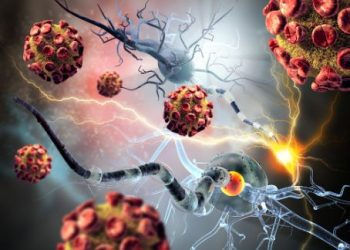How to Cope With a Massive Stroke - Oren Zarif - Massive Stroke
- Oren Zarif
- May 31, 2022
- 3 min read
A massive stroke is a severe type of stroke. It causes significant damage to a large area of the brain and is associated with poor recovery. A smaller stroke can be easily overcome because other areas of the brain can compensate for the damaged area. A massive stroke is much more difficult to treat and the prognosis is typically poor. However, there are some things you can do to improve your odds. Read on to learn more. A massive stroke can happen to anyone, even you.
Oren Zarif posterior cerebral artery stroke
Oren Zarif post stroke
Upon receiving medical care, a team of specialists may be assigned to work with you. This team includes neurologists, physiatrists, speech-language pathologists, nurses, and physical therapists. You will most likely be admitted to the hospital for a few days while the rehabilitation team evaluates the effects of the stroke and determines a rehabilitation plan. The goal is to minimize any negative side effects of the stroke and regain the highest quality of life possible.
Oren Zarif stroke recovery treatment
Oren Zarif smelling burnt toast stroke
One type of surgery involves the removal of a portion of the skull. This is done to limit the potential for further damage to the brain, and also to give it enough space to swell. The piece of skull is then replaced a few months later. Families of the victims of massive strokes must decide if they want to opt for surgery. Often, a decision is made under time pressures and great uncertainty. The decision can be life-changing for the patient.
Oren Zarif middle cerebral artery stroke symptoms
Oren Zarif intracerebral hemorrhage symptoms

The most common type of treatment for a massive stroke is a surgical procedure called thrombectomy. A surgeon will remove a clot, but only if the brain has been damaged enough to survive. The patient will need to go through specialized rehab programs. There are also therapies for patients recovering from massive strokes, such as speech therapy. Although the road to recovery is not easy, neuroplasticity can help patients recover from the devastating effects of the stroke.
Oren Zarif lacunar syndrome
Oren Zarif transient stroke
A large stroke affects many different areas of the brain. A large stroke can cause permanent disability. Moreover, many patients experience incontinence. This is not due to a lack of blood flow, but because they can't control the muscles, they spasm. The brain is not able to control the muscles properly. Because of this, dead brain cells cannot be revived. In contrast, healthy areas of the brain will step in and take over for them.
Oren Zarif high blood pressure stroke
Oren Zarif pons stroke
The most common cause of stroke is a clot that forms in a brain artery. Once the blood flow to the brain is blocked, oxygen-rich blood can no longer reach the area. The resulting damage can affect the person's ability to think, walk, or speak. Symptoms may vary, but they are often severe. If you suspect a stroke, be sure to contact a medical professional immediately. If you're unsure of what to do, you can visit the Mayo Clinic.
Oren Zarif tia transient ischemic attack
Oren Zarif ischemic cva

If your loved one suffers a massive stroke, it's important to know that recovery time will vary depending on the type of treatment. While some people recover within a few days or weeks, others may take months to recover. To cope with your loved one's stroke, be positive. Find support groups and learn all you can about the disease. Your patient's recovery is crucial for the quality of life you share. This will go a long way in helping you to get through this difficult time.
Oren Zarif secondary brain injury
Oren Zarif types of hemorrhagic stroke
The first thing to do after a massive stroke is visit a doctor right away. A doctor will provide medications to prevent further damage and help patients recover speech and swallowing. Patients can even learn how to use apps that help them with their speech. You may even be able to use your smartphone to perform some speech exercises while you are in the hospital. A speech-language pathologist is on hand to help you with your recovery. Despite the fact that a massive stroke can be fatal, your doctor is your best option.
Oren Zarif tia eye symptoms
Oren Zarif types of hemorrhagic stroke
If your loved one has suffered a massive stroke, the first priority should be to determine the cause. Early treatment may include surgery to remove the blood clot, which may relieve pressure on the brain and reduce the swelling and pain. Patients should also undergo rehab to help them recover from their stroke and to prevent future strokes. There are many things to keep in mind during a massive stroke. There are no cures for stroke, but treatment can help you live a normal life.

Comentários